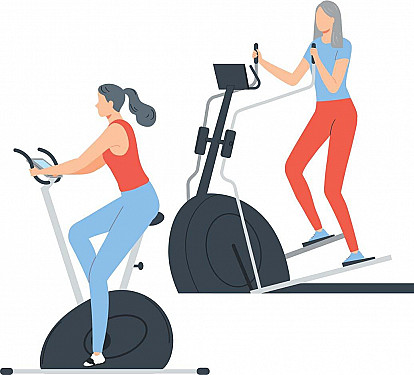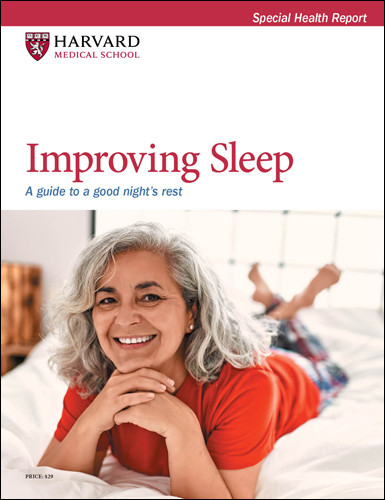Want better sleep? Aim for at least an hour of exercise per week
News briefs
- Reviewed by Anthony L. Komaroff, MD, Editor in Chief, Harvard Health Letter; Editorial Advisory Board Member, Harvard Health Publishing

Regular exercise promotes better sleep quality and reduces the risk for insomnia. But how much exercise does it take to get sleep benefits? A study published online March 26, 2024, by BMJ Open suggests an answer. Researchers evaluated the sleep questionnaire responses of about 4,400 people (ages 39 to 67) in Europe. Participants reported on their overall health and various aspects of their physical activity and sleep habits (including how long they usually slept each night and any insomnia symptoms they had, such as difficulty falling asleep, nighttime awakenings, or daytime sleepiness). Answers were collected at two points in time, 10 years apart. People who said that they exercised at least twice a week (for a total of at least an hour a week) for the entire 10 years were much less likely to report sleeping difficulties compared with people who reported that they were either inactive or less active during the study period. The study is observational and can't prove conclusively that exercising an hour or more per week will improve sleep. But we know that any amount of exercise is beneficial for health. This study provides an additional incentive to get more active.
Image: © kali9/Getty Images
About the Author

Heidi Godman, Executive Editor, Harvard Health Letter
About the Reviewer

Anthony L. Komaroff, MD, Editor in Chief, Harvard Health Letter; Editorial Advisory Board Member, Harvard Health Publishing
Disclaimer:
As a service to our readers, Harvard Health Publishing provides access to our library of archived content. Please note the date of last review or update on all articles.
No content on this site, regardless of date, should ever be used as a substitute for direct medical advice from your doctor or other qualified clinician.
















